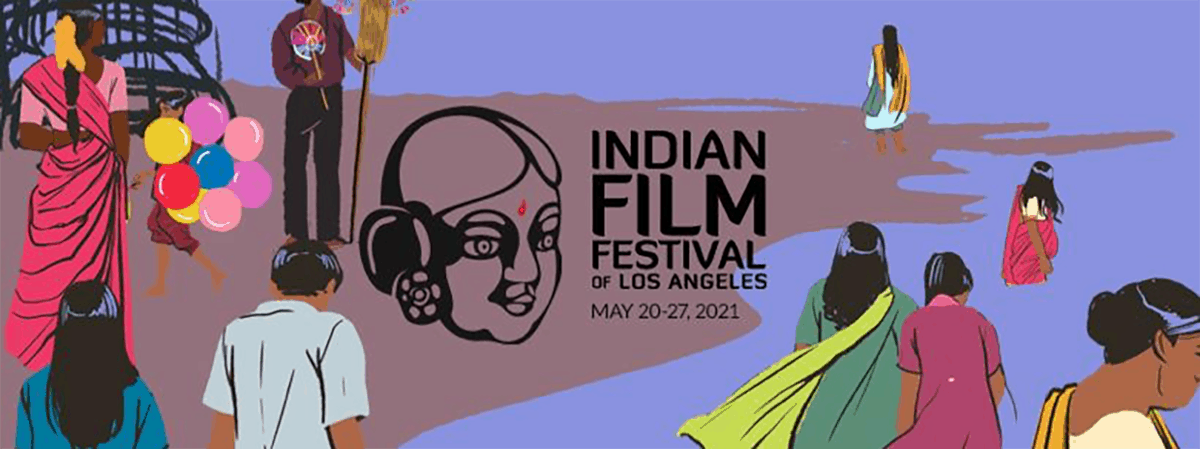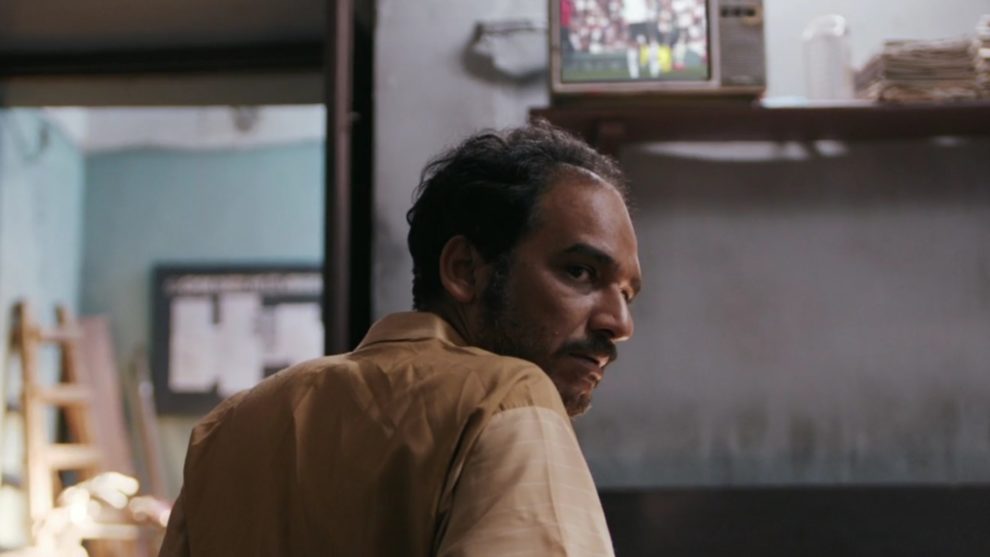Starting from the 2005 release “Ek Mutho Chabi”, Indranil Roychowdhury has six directorial credits to his name. The most well-known of them is “Phoring” (2013), a moving tale of an adolescent boy, which spent some time in the festival circuit. His latest release is “Debris Of Desire” (2020), adapted from two short stories by iconic Bengali author Manik Bandyopadhyay. It is a co-production of both sides of the Bengal border.
“Debris Of Desire“ is screening at Indian Film Festival of Los Angeles

Two stories create the narrative of the movie: one involves Satya, a petty criminal. He has an on-again-off-again relationship with prostitute Beuti, a Bangladeshi immigrant. In the meantime, he plans to rob the woman and run away. Another involves Chandu, a man with drinking and anger issues which force him to change jobs every now and then, including being a factory worker and an ATM security guard. His wife is Soma, who works as a full-time maid, a decision that he cannot agree to. Chandu decides to accept his co-worker's recommendation and supply drugs to increase his income.

“Bishakto Prem” and “Subala”, two stories written by Manik Bandyopadhyay, are adapted to fit the modern urban landscape. Bandyopadhyay was a realist, and the protagonists and other important characters of his stories often were the downtrodden people, members of the financially and socially weaker section of the Bengali population. Thus, the protagonists of the movie are people working odd jobs, earning meagre money, and straddling the line of legality. The dawn begins their desperation to survive in a cruel world, the dusk only leads to more desperation. However, the characters can be repulsive as well. Chandu has an unpleasant drinking problem, which coupled with his anger issues, leads him to switch jobs from time to time and generates crisis for his household, both monetary and emotional. However, it does not render him diabolical, as it lies from a destructive dose of frustration that lies far beyond the monetary condition of his household. The frustration is political and public. When Chandu speaks to a shopkeeper, his works hint of him being a member of CPI(M), a party that lost the Bengal Government in the early 2010s. While no substantial backstory is provided, one can effortlessly interpret one: Chandu, as a member of the ruling party, had some esteem in the society which he slowly lost over time and the political-turned-social frustration oversees his dangerous habits.
However, if his drinking and outrageous nature can be excused for being a result of slowly scorching frustration, indefensible is his misogyny and xenophobia. No, it is not he who is solely accountable. It is the society that protects misogyny and xenophobia against all modes of progression, and amongst the poorer compartment of the society dominated by deprivation, it is easier to do so. The fragile masculine ego of Chandu, distressed by his incapacity, authorizes downpours of anger upon his wife. It is possible and probable that he cares about the family, but unpardonable is his determination to not confront his crises. Satya, too, is a misogynist, but less candid about it. He shows tenderness at times and his hesitancy leads to an enormous change in the lives of multiple individuals. Pathetic is the circumstance of the female characters, Soma and Beuti, who never complains and actively try to withstand the barbarity of the world and survive it, a reasonable idea that patriarchy loathes. All four characters, in some way, desire, the male duo through unreasonablility, the female duo through practicality.
The movie is minimalistic, although it materialises further in its narrative than in cinematography and art direction. The four characters are understood through their backstories, and while a rich world of a diverse set of folk is established, they do not eat up the screentime of the lead quartet, maintaining awareness exclusively on them. The art direction is comprehensive and carefully made. Regardless, the director appears to overuse some of his shot selection at times without much success, taking away some sparkle. He has evidently watched and observed different modes of connecting a multi-story film. The connection is not as radical as Wong Kar-wai shows in “Chungking Express” but quite effortless and fresh nonetheless. A priest connects the present and future of the movie at times, subtle in his actions and presence. Then there are multiple examples of characters from two stories meet, both the protagonists and the secondary characters. The strategies are capped off by a lovely homage to Kieslowski's Three Colours Trilogy.
Ritwick Chakraborty is without any shadow of a doubt, one of the best Bengali movie actors working today. He shines in exhibits of atrociousness and ironically in earning sympathy into his characters. His Chandu fits all the bills of a characteristic Chakraborty performance. Aupee Karim, the Bangladeshi actresses starring in her first film role in a decade and a half, is excellent as a woman whose idea of herself is equivalent to that of her household. Chandreyee Ghosh, who has for the last few years mostly been known for popular enactments in atrocious television serials, performs wonderfully in a delicate part, and Shohel Mondal, although the least impressive of the cast, attempts to conform to the quality of his fellow actors.
“Debris Of Desire” is a movie that attempts to run a substantial distance and is boosted by a cast of good actors, some fresh ways to connect stories and an honest depiction of widespread misogyny.















